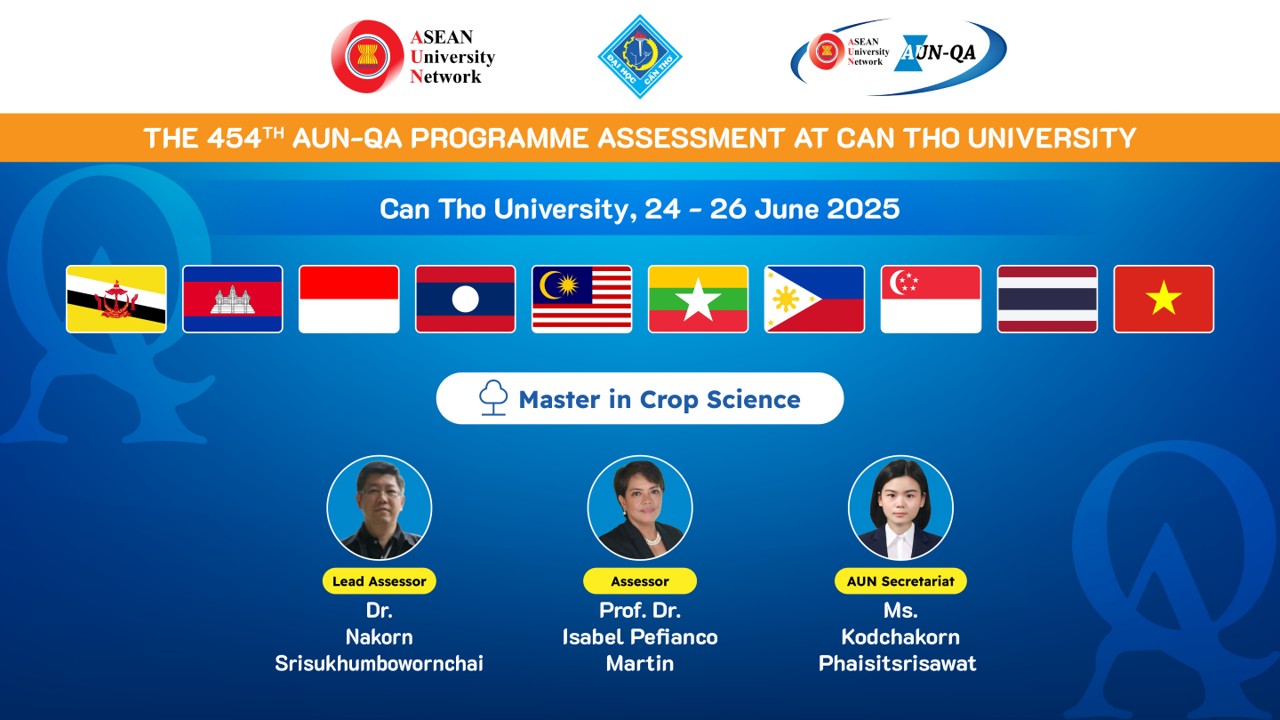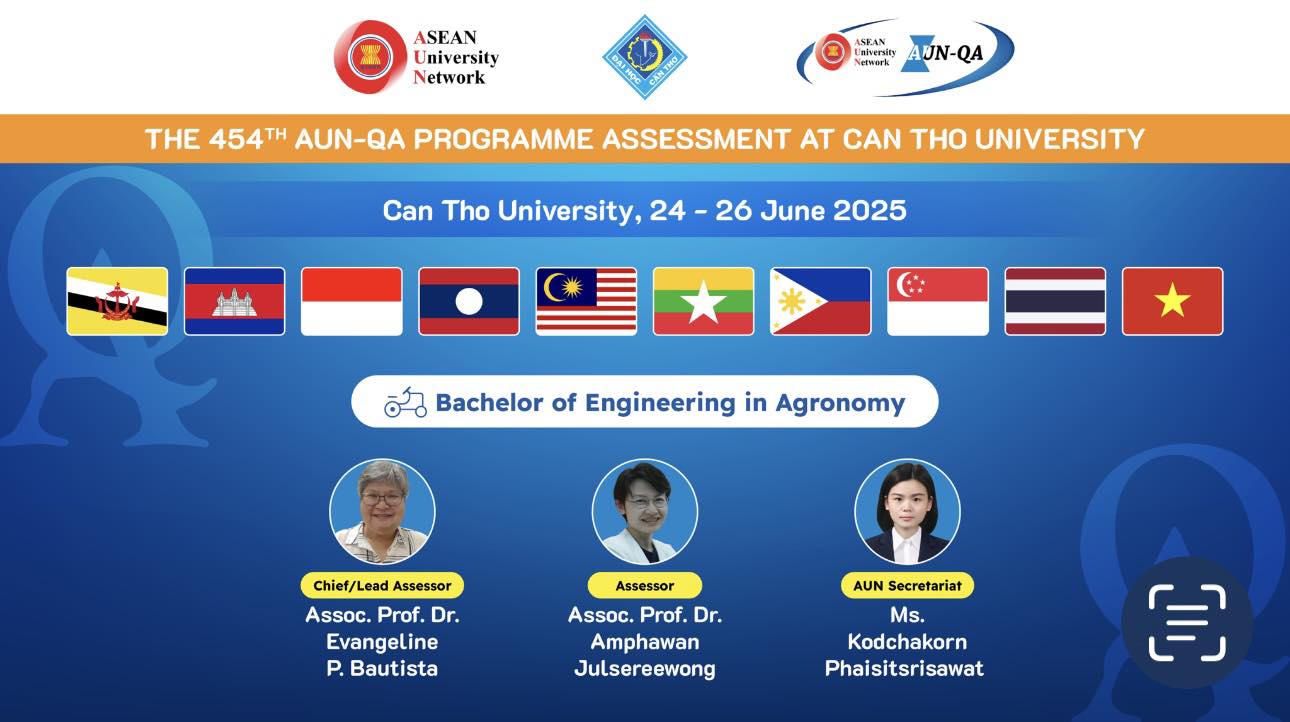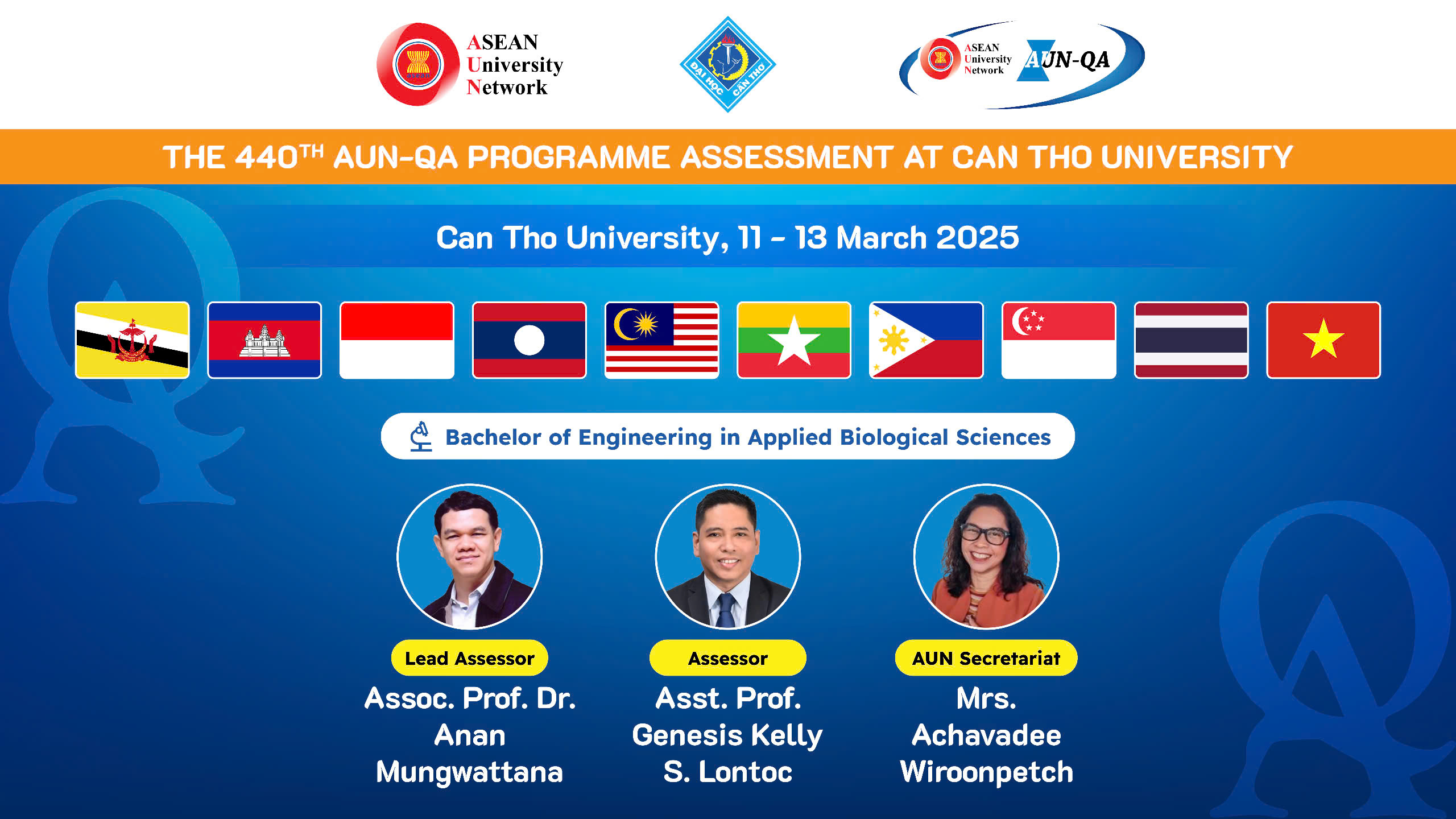



The history of establishment and development of the College of Agriculture has been closely associated with the changes of Can Tho University over time. In 1968, Can Tho University established the College of Agriculture two years after its foundation. By 1975, the College of Agriculture enrolled 7 courses, with more than 300 of the agricultural engineers graduated.
After 1975, the College of Agriculture was renamed as the Faculty of Agriculture with two main majors: Agronomy and Animal Husbandry. In subsequent years, in order to meet the increasingly diversified production practices of the Mekong Delta and the South of Vietnam, the Faculty of Agriculture opened new courses, including Irrigation and Land Rehabilitation (1978), Agricultural Mechanic (1978), Food Processing and Preservation (1978), Agricultural Economics (1979), Aquaculture and Fisheries (1979). Later, specialized faculties were established to manage these courses.
In 1996, with the reorganization of the university network in Vietnam, the Faculty of Agriculture was re-established based on merging the Faculty of Agromony, Animal Husbandry and Veterinary Medicine, Aquaculture and Fisheries, and Food Processing. This consolidation strengthens and promotes interdisciplinary strength through linkages in training as well as in research and production. Due to the rapid development of the aquaculture and fisheries sectors, the College of Aquaculture and Fisheries has been re-established and separated from the College of Agriculture since 2002.
Throughout its history, the College has received many noble titles for its role in resource training, research, and technology transfer to bring scientific and technological progress to fields, factories, and farmers in agriculture. Most notably, the College of Agriculture was honored by the Prime Minister with the Heroic Medal of Labor during the renovation period from 1989 to 1999.
With the aid of the Japanese Government, the buildings of CoA were built and put into use on the Campus II of Can Tho University, with an area of 2.7 hectares from 1996. CoA received the modern equipment for in-depth research from the JICA project of the Japanese Government, the Higher Education Project Phase II of the Ministry of Education and Training, Vietnam, and the cooperation projects with universities from the Kingdom of Belgium through VLIR. By 2020, CoA had 41 laboratories, 01 net house and 01 experimental greenhouses (6,222 m2), 01 experimental station (2.43 ha), 02 experimental workshops, and 01 veterinary clinic.
From the Can Tho University Upgrading Project (ODA Project), CoA has established 38 new laboratories and expects to be used from the beginning of 2022. In addition, the College also sets up a new net house area (3,804 m2), with 06 net houses for the experimental cultivation of a wide range of crops by using both conventional and innovative farming methods. The laboratories and net houses are fully equipped with modern equipment for teaching, conducting in-depth research, and collaborating on domestic and international projects.
Besides the Learning Resource Center of Can Tho University, the CoA is also managing a specialized library with a capacity of 150 seats (an area of 1,006 m2). The library has 5,748 book titles (with a total of 16,488 books), about 14,000 undergraduate theses, over 2,000 postgraduate theses, and over 6,000 journals/themes. In addition, the College has a hall and a meeting room. All facilities of the College have been operating effectively to serve for purposes of education, scientific research, and technology transfer activities.
The College of Agriculture has the main task of training human resources for bachelor, master, and doctor of philosophy in agriculture. CoA also focuses on promoting international cooperation, scientific research, and technology transfer for practical production, which has contributed to the development of the agricultural industry in the Mekong Delta and the whole country. Currently, CoA offers 14 undergraduate courses (including 01 high-quality course) with 5,282 students enrolled. CoA also has 9 master programs and 6 doctoral majors at the post-graduate level, with a total of 270 master students and 83 PhD candidates (as of June 2021).
The College of Agriculture has established cooperative relationships with many institutes, universities, international organizations, and NGOs. The typical international cooperation programs and projects in recent years include: (i) the development of sustainable agriculture adapting to climate change and sea level rise using the global value chain approach (ODA project, Japan), development of postgraduate training programs based on the cooperative networking (VLIR-Network project, Belgium), development of human resource and research capacity (DANIDA project, Denmark; SAREC project, Sweden; MACBETH project, WTO).
CoA also has a great number of cooperative activities about research, development and evaluation of solutions and products for agricultural production in the Mekong Delta. Each year, the College performs several scientific research projects at the request of local and state management agencies, and domestic and foreign organizations and enterprises. CoA strongly specializes about:
- Research of plant pest management,
- Improvement and sustainable land use,
- Rice breeding and selection,
- Crop structure transformation with breakthroughs in the development of innovative farming techniques,
- Research and transfer of animal husbandry techniques,
- Development of methods and techniques to control environmental pollution and diseases related to human health from animals,
- Development of technologies for processing and preserving agricultural products to increase the value chain for agricultural production,
The effective and oriented scientific research activities have contributed to improve the quality of teaching in the direction of being associated with practice and applied to production. Furthermore, the staff of CoA published 1,650 scientific articles in prestigious domestic and foreign specialized journals in the period 2015-2020, of which 478 articles were published in English.
Our college is open for any new colaborative projects with any domestic and oversea partners about multi-field and multi-disciplinary research related to agriculture.
DEAN’S EXECUTIVE MANAGEMENT COMMITTEE
| Feedback:
This email address is being protected from spambots. You need JavaScript enabled to view it. |